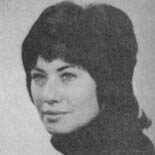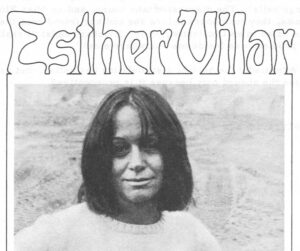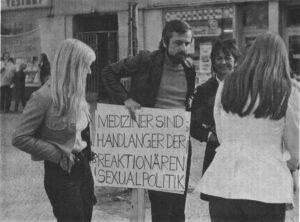Evelyn Leopold
- 1971

Fellowship Title:
- Women's Liberation in Europe
Fellowship Year:
- 1971

“The Tamed Man”: A Critique
Esther Vilar West Berlin April, 1972 Esther Vilar Esther Vilar was born in Buenos Aires in 1935 as Esther Margarata Katzer, the daughter of German immigrant parents. She studied medicine and spent several years working and traveling through the United States, Africa and Europe. After arriving in West Germany, Vilar enrolled as a sociology student and worked as an intern in a Munich hospital. She married a German writer, Klaus Wagn, whom she has now divorced. The couple has an eight-year old son. However Vilar and Wagn are still partners in a small publishing company, Caann, which in the past has produced their own works. Vilar has written several essays, a play, “The Summer after the Death of Picasso,” and a novel, “Man and Dolls.” She attributes her inspiration for “Der Dressierte Mann” to her angry reaction to the American Women’s Liberation Movement. Once upon a time (about nine months ago) women’s lib people in West Germany thought of Esther Vilar as a bad joke who would go away. But she did not.

ACTION 218: Power and Morality
(abortion campaign in West Germany) West Berlin, January, 1971 Photos used in this article courtesy of Frank-Michael Urban, West Berlin. Sign at legalized abortion rally reads, “Medical men are henchmen of a reactionary sexual politics.” “They say this law is the last wall of moral.…If this is the last wall of moral then that wall is not far away…Moral has nothing to do with this because it always comes out the way the powers that rule say it should.” — (Frau Hodann at rally for “legal abortions, work and bread,” Stuttgart, 1931) At six a.m. on. June 22, policemen in groups of 30 raided the apartments of Edda Albrecht-Wagner, a student, and Ute Geissler, a bookkeeper, on deserted Munich streets. Ignoring questions from the sleepy women, the police in both places methodically collected every scrap of paper within reach. Two hours later they reported to the Bavarian prosecutor with 3,000 signatures calling for legalized abortion, several lists of contact addresses, mimeographed pamphlets, minutes of meetings. The materials were returned later, presumably parts were
